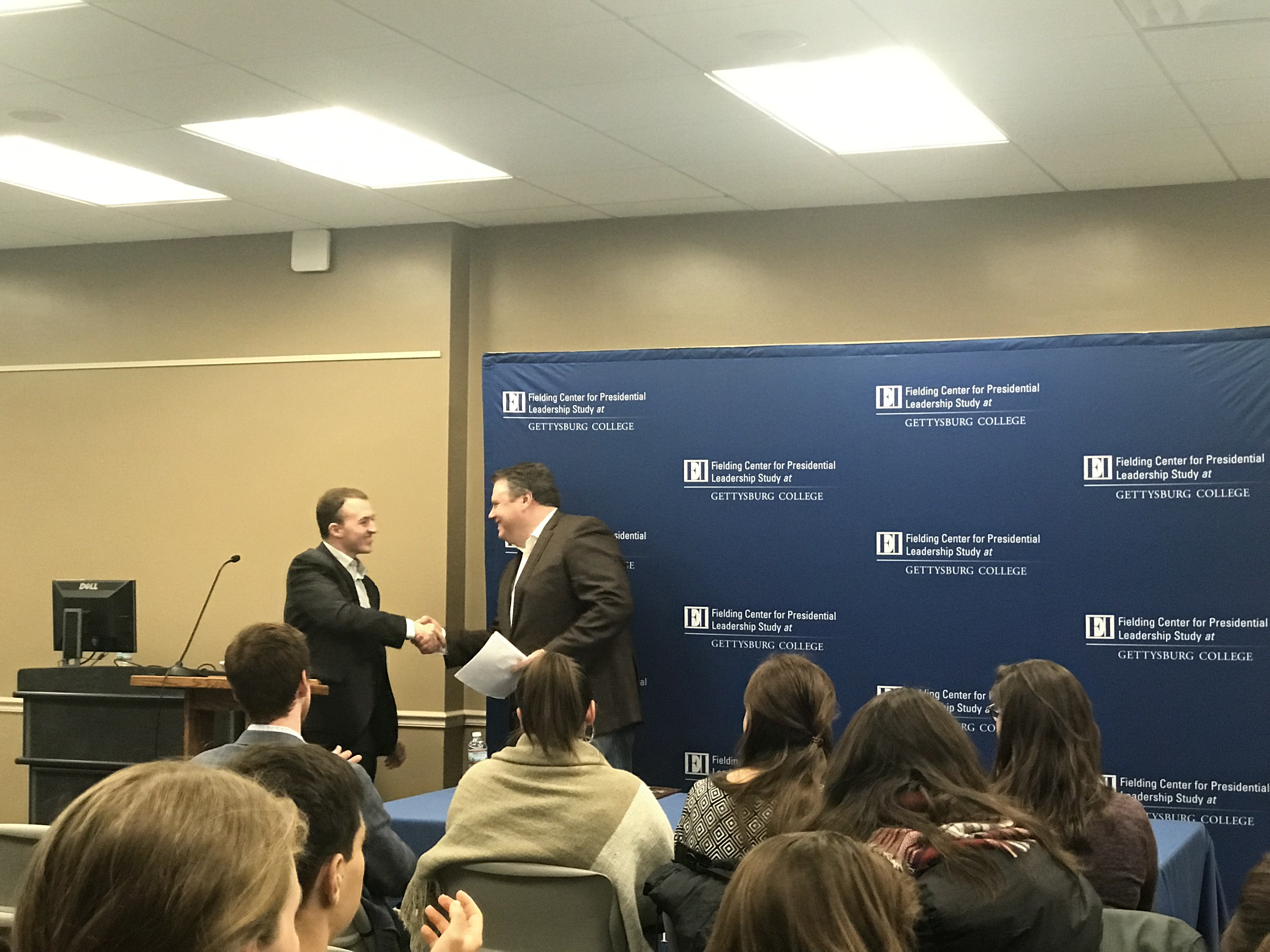By Nicole DeJacimo, Staff Writer
Jim Merrill came back to Gettysburg College for the first time since 1995 when asked by the Eisenhower Institute Fielding Center to talk about “his experience working as a consultant and adviser for presidential campaigns.” He worked on the campaigns of George Bush, Mitt Romney, and Marco Rubio.
Just after graduating, he worked in the Governor of New Hampshire’s office. His work in the Governor’s office lasted until he contacted some friends working on the Bush campaign. Soon enough, he was running the New Hampshire campaign plan. Merrill emphasized the importance of New Hampshire’s influence on the primaries and final election. Due to the history of town meetings and its small size, politicians are forced to make closer connections to the voters of New Hampshire. Since 1952, it has had an early election, and the outcome of that election has “created and broken presidential candidates.” Merrill told a story about a small diner called Red Arrow in NH that many candidates will visit to talk to locals about their mission and goals. This personal connection, as well as honesty from candidates, are critical for New Hampshirites when voting. Especially, because New Hampshire is an “open” state meaning that a voter does not need to be registered as a Democrat or Republican to vote.
Another factor that is unique to New Hampshire is their legislators do not get paid more than $100 a year. This ensures that no one is running for the money, but because they care deeply about the well-being of their state. Also, all of their terms are for two years. The state wants people to be accountable, and it allows for fresh faces to be frequent.
When the floor was opened up to questions from the audience, one student was concerned with New Hampshire’s way of more personally getting to know candidates. Would it affect their decision on how well the candidate could actually lead? Merrill validated this concern but assured the audience that New Hampshirites are very politically educated. He quoted a study that said 35% of people from New Hampshire discuss politics every week, which is quite high compared to the national average of 20%.
Finally, a student asked for advice about joining a campaign team themselves. Merrill advised the audience to “stay humble, be present, and show up.” He explained that, in order to be successful in this field, you must be able to communicate well orally and in writing and that working hard can open up a world of opportunities. If anyone is interested in following in Merrill’s footsteps he encouraged the students to reach out to him as he will “always look out for fellow Gettysburgians.”

